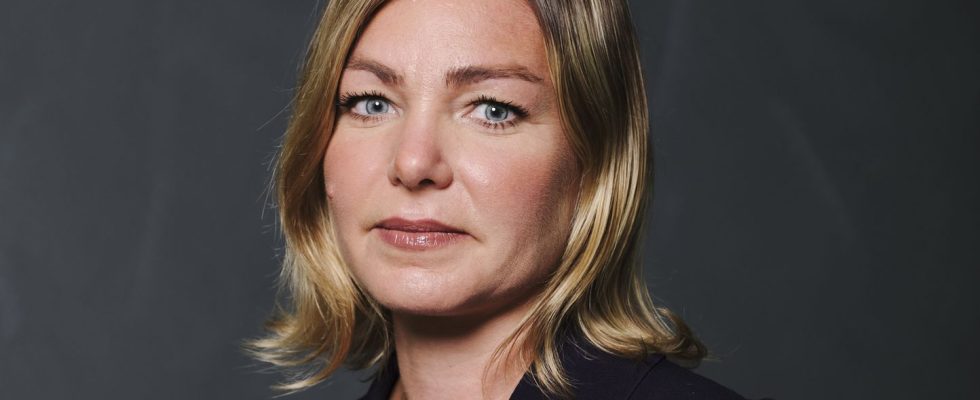High-tech for women. In a historically male-dominated environment, more and more women are asserting themselves. With its series “Women(s) in tech”, 20 minutes goes to meet them, gives them a voice and draws their portrait. After Anaïs Libold from Dolby, after Hanna and Laura, the founders of the electric bicycle brand BCKL, or even Whitney Wolfe Herd, the creator of Tinder and Bumble, meeting with Valérie Piau, vice-president of marketing (Europe, Middle East, Africa) from the manufacturer of IT products Acer.
What path led you to tech?
I wasn’t necessarily destined for this type of career. I have a brother who is an engineer, another a maths teacher… I saw them both building their first PC in the living room. I probably also had a curiosity for products… Otherwise, I did a scientific baccalaureate. Then particularly female studies: the Sorbonne, the Catholic University of the West! In the end, I have always worked in tech. Even as an intern, I took my first steps at Motorola. Then I worked at Packard Bell, bought by Acer in 2009.
When you were recruited, did you have the feeling that it was more difficult to stand out against potential male profiles?
No. Not necessarily. Originally, I was recruited at Packard Bell in logistics, a very male-dominated world. But I didn’t feel that way.
Have you, during your journey, experienced events that could reflect a certain form of patriarchy?
Yes, 10-15 years ago, it existed. This is going to be very cliché, but I work in Italian Switzerland… so close to Italy! I’ve been in this kind of situation, but I didn’t have a bad experience. In my career, it pushed me a little more towards my limits. It was a benevolent patriarchy, we will say. So I have not experienced any negative situation in relation to this. It was quite educational. Now, I must admit that Covid has changed mentalities quite a bit.
How ?
I find that there is more openness about the responsibilities of each individual, about listening to people.
On a daily basis, what does your work consist of today?
I must define Acer’s marketing strategy at the EMEA level (Europe, Middle East and Africa States), ensuring I follow and respect the overall strategy of the company and the group.
I also manage our e-commerce platform, with financial objectives that we must achieve. And finally I take care of the “new business” part which concerns everything that is not PC. Anything that doesn’t have a CPU, graphics card or screen comes into my domain. By 2023, this sector represented 25% of the company’s revenues on a global scale, and between 5 and 10% for the area that I represent.
In the position you occupy, are you in a predominantly male or female professional environment?
I worked in logistics and in products, which are essentially male-dominated worlds. Now in marketing, I operate in a more feminine sector. Depending on the positions I have held, there is therefore a difference. In EMEA, we are still 70% men to 30% women. It’s essentially masculine. Parity does not exist, although this tends to change.
It’s very cliché, but when I started, girls were more likely to apply for jobs at L’Oréal than in the IT industry. Today, I find that things are gradually changing and that within 5 to 10 years, things will have really evolved.
Do you feel that new generations have a different perception of gender issues within a tech company?
We see the change. Even if it’s not radical, you have to be honest. A 10-year perspective therefore seems quite realistic to me.
Equal pay for equal position?
At Acer, we are paid according to positions. Our salaries are based on our roles. There are scales depending on the country, according to our results too. I think Acer is pretty fair on the subject.
Are your development prospects the same as those of your male colleagues?
I think my journey shows that this is the case and that I have had as many opportunities as men. Afterwards, you always have to work together, but whether you’re a man or a woman, it’s always the same thing.
Have you experienced situations where you felt like you had to fight more because you were a woman?
No, not because I was a woman.
You work in particular in the Middle East and Africa areas, is the vision that we can have on site of your position identical?
Honestly, yes. Management is quite open in these countries. I went to Dubai for COP28. Physically there, obviously, we feel a difference, there are still more men than women. But for Acer management in the Middle East, no.
Precisely, COP28. What feedback?
Going on site to discuss sustainability, the challenge was not necessarily simple. This is a subject on which we express ourselves a lot, but we had to avoid greenwashing, and be sure to be concrete. And it was, with important positions taken: from 2025, 30% of our PCs will be produced with recycled plastics; net zero carbon by 2025; 100% use of renewable energies by 2050…
These are things we are committed to, but with our partners and suppliers. It is a long process.
Which products do you defend with which you have the greatest sensitivity?
The first green PC that we launched, Vero. It represents the brand well. It is an important reference at the marketing and personal levels.
Do you feel that your company is making special efforts for parity in its recruitment?
It’s not simple: recruitment must always be based on skills and qualities. There are fewer women candidates. But you have to dare. If there is a message to convey, it is that there are no barriers. You have to go for it, but stay yourself, don’t doubt, and then go ahead and try your luck!

